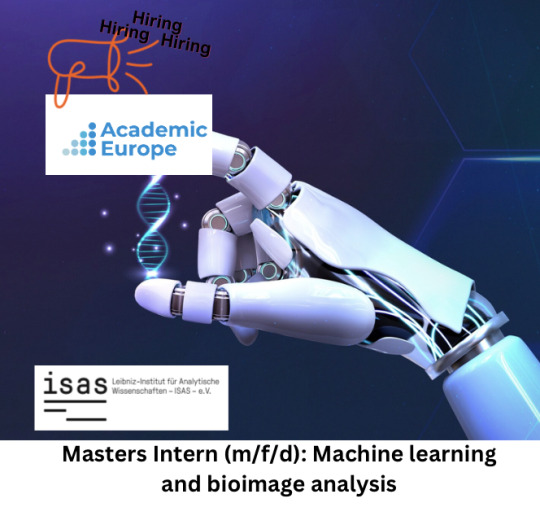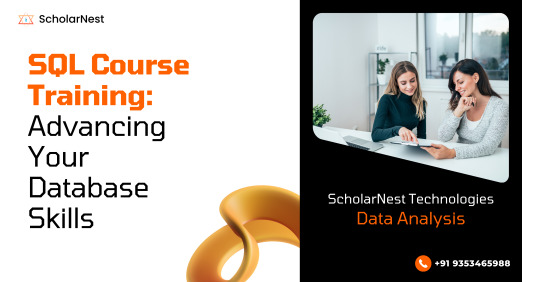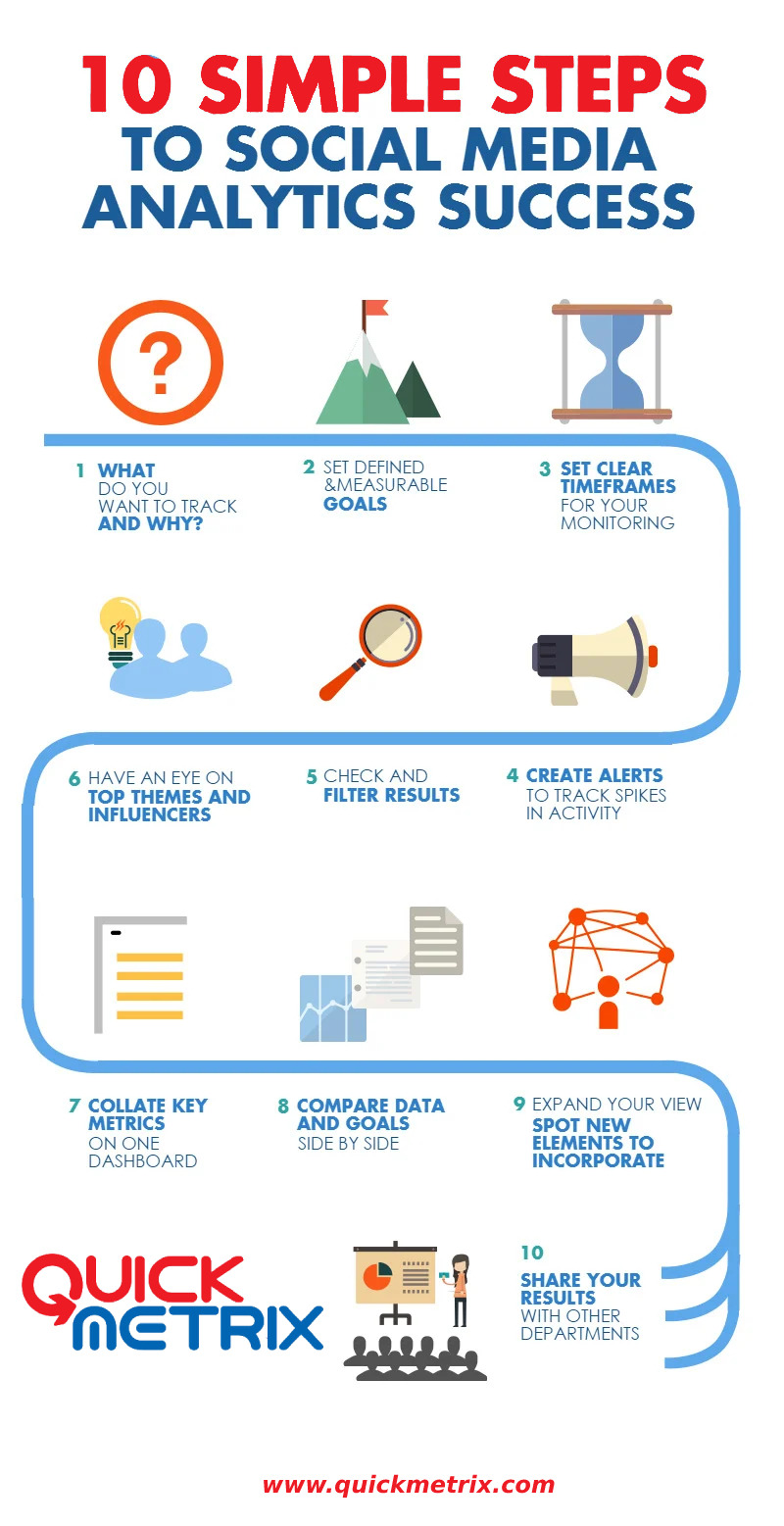#master data analysis
Explore tagged Tumblr posts
Text
Master Data Analysis
MY SUGGESTION : VK ACADEMY
Master Data Analysis with VK Academy's Comprehensive Courses 📊✨
In today's data-driven world, mastering data analysis isn't just a skill—it's a gateway to unlocking insights that drive business success. VK Academy stands out as a premier platform offering comprehensive courses designed to equip you with the expertise you need. Here’s why VK Academy is your ultimate destination for mastering data analysis:
Why Choose VK Academy Courses?
(I AM CURRENTLY INTERNING)
Expert-Led Learning: Learn from industry experts who bring practical insights and real-world experience into the classroom, ensuring you receive top-tier education.
Hands-On Experience: VK Academy emphasizes practical learning with hands-on projects that allow you to apply theoretical knowledge to real-world scenarios, enhancing your skills effectively.
Flexible Learning Options: Whether you're a beginner or an experienced professional, VK Academy offers courses tailored to various skill levels, allowing you to learn at your own pace and convenience.
Comprehensive Curriculum: From foundational concepts to advanced techniques in data analysis, VK Academy's courses cover everything you need to become proficient in handling data.
Career-Boosting Certifications: Upon completion of VK Academy courses, you'll receive certifications recognized by employers, validating your skills and enhancing your career prospects.
Essential Skills You'll Gain:
Data Collection and Cleaning: Master techniques for gathering and preparing data for analysis, ensuring accuracy and reliability.
Statistical Analysis: Gain proficiency in applying statistical methods to extract meaningful insights and trends from data.
Data Visualization: Learn to create compelling visualizations using tools like Tableau and Power BI to effectively communicate insights.
Predictive Analytics: Understand how to use historical data to forecast future trends and make informed predictions.
Strategic Decision-Making: Develop the ability to translate data insights into actionable strategies that drive business success.
Why Master Data Analysis?

Empowered Decision-Making: Gain the skills to make informed decisions based on data-driven insights, reducing uncertainty and improving outcomes.
Career Advancement: Enhance your professional profile with in-demand skills in data analysis, opening doors to lucrative career opportunities.
Business Impact: Drive innovation and efficiency within organizations by leveraging data to optimize processes and strategies.
Personal Growth: Expand your knowledge and capabilities in data analysis, positioning yourself as a valuable asset in any industry.
Embark on your journey to master data analysis with VK Academy's exceptional courses. Start today and unleash the power of data! 🌟
0 notes
Text
Data Analysis Online: Crafting a Learning Path for Success

In today's data-driven world, mastering data analysis is essential for professionals across various industries. As the demand for data analysis skills continues to grow, individuals are turning to online learning platforms to acquire the knowledge and expertise needed to succeed in this field. Crafting a structured learning path is key to achieving success in data analysis online. Let's explore how to design a learning path tailored to mastering data analysis and advancing your career aspirations.
1. Assess Your Current Skill Level:
Before diving into data analysis online, it's essential to assess your current skill level and identify areas for improvement. Evaluate your proficiency in essential tools and concepts such as Python programming, SQL querying, and basic statistical analysis. Understanding your strengths and weaknesses will help you tailor your learning path to address specific skill gaps and build a solid foundation for success.
2. Identify Learning Objectives:
Define clear learning objectives to guide your data analysis journey. Whether you're aiming to become proficient in Python programming for data analysis, master SQL for database querying, or explore advanced topics like machine learning and big data analytics, setting specific goals will help you stay focused and motivated throughout your learning experience.
3. Choose High-Quality Courses:
Selecting the right courses is crucial for mastering data analysis online. Look for reputable online platforms that offer a wide range of courses covering various aspects of data analysis, including Python programming, SQL querying, and specialized topics like Apache Spark for big data analytics. Consider factors such as course content, instructor expertise, hands-on learning opportunities, and student reviews when choosing the best data analysis courses online.
4. Build a Solid Foundation:
Begin your learning journey by focusing on building a solid foundation in essential data analysis skills. Start with introductory courses that cover fundamental concepts and techniques, such as Python programming basics, SQL querying fundamentals, and data manipulation and visualization. These foundational skills will serve as the building blocks for more advanced topics and specialized areas of data analysis.
5. Dive Deeper into Specialized Topics:
Once you've established a strong foundation, explore specialized topics and advanced techniques to expand your data analysis skill set. Delve into courses that cover advanced Python programming for data analysis, advanced SQL querying and database management, and specialized tools and libraries for tasks like data visualization, machine learning, and big data processing with Apache Spark. By exploring specialized topics, you can deepen your expertise and unlock new opportunities in data analysis.
6. Practice, Practice, Practice:
Practice is essential for mastering data analysis skills. Apply what you've learned in your courses to real-world projects, datasets, and problem-solving scenarios. Engage in hands-on exercises, projects, and challenges to reinforce your learning, develop practical skills, and build a portfolio of work that showcases your expertise in data analysis.
In conclusion, crafting a learning path for success in data analysis online requires careful planning, dedication, and a commitment to continuous learning. By assessing your current skill level, setting clear learning objectives, choosing high-quality courses, building a solid foundation, exploring specialized topics, practicing regularly, and staying updated with industry trends, you can embark on a rewarding journey to master data analysis and achieve your career goals.
#apache spark course#data analysis#data analysis skill#python course#best python course#data analysis course#data analysis course online#master data analysis#python course online#sql course#sql course online#best sql course#data analysis online#python course training#sql course training#apache spark course online#best apache spark course#scholarnest#scholarnest technologies
1 note
·
View note
Text
Due Tuesday 8/27
HW:
Reply to this post.
In your response, or in the notes, or in the tags, please include the names of 5-10 of your favorite characters, as well as 2-4+ descriptive words for each one.
Example below the cut, as well as in the notes.
(I'm doing a data analysis project and I need as much data as I can, so please help me out)
Hatake Kakashi
Smart
Caring
Forethoughtful
Troubled Backstory
Charismatic
Koro-sensei
Super-intelligent
Funny
Weird
Caring to a fault
Warm demeanor
Biscuit Krueger
Smart
Ruthless
Vain
Strong
Cold demeanor
Irina Jelavic
Seems dumb until she needs to be smart
Scene-stealing beauty
Charismatic
Butt of the joke
Troubled backstory
Genkai
Smart
Forethoughtful
Cold demeanor
Strong
Troubled backstory
Master Roshi
Wise
Lecherous
Funny
Warm demeanor
#hw#personal#data analysis#ela / english language arts#kakashi hatake#naruto#korosensei#irina jelavic#assassination classroom#biscuit krueger#hunter x hunter#genkai#yu yu hakusho#Master Roshi#dragon ball#Teachblr#anime#look... I'm trying to cast a wide net here. I have to include a lot of tags
30 notes
·
View notes
Text
What Are the Qualifications for a Data Scientist?
In today's data-driven world, the role of a data scientist has become one of the most coveted career paths. With businesses relying on data for decision-making, understanding customer behavior, and improving products, the demand for skilled professionals who can analyze, interpret, and extract value from data is at an all-time high. If you're wondering what qualifications are needed to become a successful data scientist, how DataCouncil can help you get there, and why a data science course in Pune is a great option, this blog has the answers.
The Key Qualifications for a Data Scientist
To succeed as a data scientist, a mix of technical skills, education, and hands-on experience is essential. Here are the core qualifications required:
1. Educational Background
A strong foundation in mathematics, statistics, or computer science is typically expected. Most data scientists hold at least a bachelor’s degree in one of these fields, with many pursuing higher education such as a master's or a Ph.D. A data science course in Pune with DataCouncil can bridge this gap, offering the academic and practical knowledge required for a strong start in the industry.
2. Proficiency in Programming Languages
Programming is at the heart of data science. You need to be comfortable with languages like Python, R, and SQL, which are widely used for data analysis, machine learning, and database management. A comprehensive data science course in Pune will teach these programming skills from scratch, ensuring you become proficient in coding for data science tasks.
3. Understanding of Machine Learning
Data scientists must have a solid grasp of machine learning techniques and algorithms such as regression, clustering, and decision trees. By enrolling in a DataCouncil course, you'll learn how to implement machine learning models to analyze data and make predictions, an essential qualification for landing a data science job.
4. Data Wrangling Skills
Raw data is often messy and unstructured, and a good data scientist needs to be adept at cleaning and processing data before it can be analyzed. DataCouncil's data science course in Pune includes practical training in tools like Pandas and Numpy for effective data wrangling, helping you develop a strong skill set in this critical area.
5. Statistical Knowledge
Statistical analysis forms the backbone of data science. Knowledge of probability, hypothesis testing, and statistical modeling allows data scientists to draw meaningful insights from data. A structured data science course in Pune offers the theoretical and practical aspects of statistics required to excel.
6. Communication and Data Visualization Skills
Being able to explain your findings in a clear and concise manner is crucial. Data scientists often need to communicate with non-technical stakeholders, making tools like Tableau, Power BI, and Matplotlib essential for creating insightful visualizations. DataCouncil’s data science course in Pune includes modules on data visualization, which can help you present data in a way that’s easy to understand.
7. Domain Knowledge
Apart from technical skills, understanding the industry you work in is a major asset. Whether it’s healthcare, finance, or e-commerce, knowing how data applies within your industry will set you apart from the competition. DataCouncil's data science course in Pune is designed to offer case studies from multiple industries, helping students gain domain-specific insights.
Why Choose DataCouncil for a Data Science Course in Pune?
If you're looking to build a successful career as a data scientist, enrolling in a data science course in Pune with DataCouncil can be your first step toward reaching your goals. Here’s why DataCouncil is the ideal choice:
Comprehensive Curriculum: The course covers everything from the basics of data science to advanced machine learning techniques.
Hands-On Projects: You'll work on real-world projects that mimic the challenges faced by data scientists in various industries.
Experienced Faculty: Learn from industry professionals who have years of experience in data science and analytics.
100% Placement Support: DataCouncil provides job assistance to help you land a data science job in Pune or anywhere else, making it a great investment in your future.
Flexible Learning Options: With both weekday and weekend batches, DataCouncil ensures that you can learn at your own pace without compromising your current commitments.
Conclusion
Becoming a data scientist requires a combination of technical expertise, analytical skills, and industry knowledge. By enrolling in a data science course in Pune with DataCouncil, you can gain all the qualifications you need to thrive in this exciting field. Whether you're a fresher looking to start your career or a professional wanting to upskill, this course will equip you with the knowledge, skills, and practical experience to succeed as a data scientist.
Explore DataCouncil’s offerings today and take the first step toward unlocking a rewarding career in data science! Looking for the best data science course in Pune? DataCouncil offers comprehensive data science classes in Pune, designed to equip you with the skills to excel in this booming field. Our data science course in Pune covers everything from data analysis to machine learning, with competitive data science course fees in Pune. We provide job-oriented programs, making us the best institute for data science in Pune with placement support. Explore online data science training in Pune and take your career to new heights!
#In today's data-driven world#the role of a data scientist has become one of the most coveted career paths. With businesses relying on data for decision-making#understanding customer behavior#and improving products#the demand for skilled professionals who can analyze#interpret#and extract value from data is at an all-time high. If you're wondering what qualifications are needed to become a successful data scientis#how DataCouncil can help you get there#and why a data science course in Pune is a great option#this blog has the answers.#The Key Qualifications for a Data Scientist#To succeed as a data scientist#a mix of technical skills#education#and hands-on experience is essential. Here are the core qualifications required:#1. Educational Background#A strong foundation in mathematics#statistics#or computer science is typically expected. Most data scientists hold at least a bachelor’s degree in one of these fields#with many pursuing higher education such as a master's or a Ph.D. A data science course in Pune with DataCouncil can bridge this gap#offering the academic and practical knowledge required for a strong start in the industry.#2. Proficiency in Programming Languages#Programming is at the heart of data science. You need to be comfortable with languages like Python#R#and SQL#which are widely used for data analysis#machine learning#and database management. A comprehensive data science course in Pune will teach these programming skills from scratch#ensuring you become proficient in coding for data science tasks.#3. Understanding of Machine Learning
3 notes
·
View notes
Text
looking at a blank excel sheet and a stack of 4 years of course evals like "where do I even start here"
#//juri speaks#lamenting the lack of proper research in either my undergrad or master's programs now..........#i would just use Forms and let it do the analysis for me#but i dont know what all they want to be able to do with the data#i AM going to recommend they use a digital eval in future years
2 notes
·
View notes
Text
Job - Alert 📢

🌟 Kickstart Your Career with Us! 🌟
The Leibniz-Institut für Analytische Wissenschaften – ISAS – e.V. is inviting applications for a Masters Intern (m/f/d) in Machine Learning and Bioimage Analysis in our Dortmund team!
📅 Application Deadline: March 31, 2025
💼 Opportunity to work on cutting-edge bioimage analysis projects!
If you're enrolled in a Master's program in computer science, statistics, or related fields, and have a passion for data analysis, we want to hear from you!
📲 Apply through our applicant portal or reach out with informal inquiries (Ref: 344_2025) at
https://www.academiceurope.com/job/?id=7080
Join us in advancing precision medicine! 🙌
#jobs#hiring#science#jobseekers#master study#internship#computer science#biomedical science#mathematics#statistics#data analysis
0 notes
Text
SQL Course Training: Advancing Your Database Skills

In the realm of data analysis and management, SQL (Structured Query Language) stands as a foundational skill indispensable for professionals seeking to navigate and manipulate databases effectively. As the demand for data-driven insights continues to soar, honing your SQL proficiency through targeted training can significantly enhance your capabilities in data analysis and open doors to diverse career opportunities. Let's explore the significance of SQL course training and how it can advance your database skills.
Understanding the Importance of SQL in Data Analysis:
SQL serves as the universal language for communicating with relational databases, enabling users to retrieve, manipulate, and manage data efficiently. Whether you're a data analyst, data scientist, or database administrator, mastering SQL empowers you to extract valuable insights, perform complex queries, and optimize database performance. With its widespread adoption across industries, SQL proficiency has become a prerequisite for roles involving data analysis and database management.
Key Components of SQL Course Training:
SQL course training encompasses a range of topics tailored to equip learners with comprehensive database management skills. From basic SQL syntax to advanced query optimization techniques, these courses cover essential concepts and best practices for leveraging SQL effectively. Key components of SQL course training include:
- SQL Fundamentals: Understanding basic SQL commands, data types, and database objects.
- Querying Databases: Crafting SELECT statements to retrieve data from tables and apply filtering, sorting, and aggregation.
- Data Manipulation: Performing INSERT, UPDATE, DELETE operations to modify data within tables.
- Database Design: Understanding principles of database normalization, table relationships, and entity-relationship modeling.
- Advanced SQL Topics: Exploring advanced SQL features such as joins, subqueries, stored procedures, and triggers.
- Optimization and Performance Tuning: Techniques for optimizing SQL queries, indexing strategies, and enhancing database performance.
Choosing the Best SQL Course:
When selecting a SQL course online, it's essential to consider factors such as:
- Curriculum: Ensure the course covers a comprehensive range of SQL topics, from fundamentals to advanced concepts.
- Hands-On Practice: Look for courses that offer hands-on exercises and projects to reinforce learning and practical application.
- Instructor Expertise: Choose courses led by experienced SQL professionals with a track record of delivering high-quality instruction.
- Student Reviews: Assess feedback from past learners to gauge the course's effectiveness and relevance to your learning goals.
- Certification: Some SQL courses offer certification upon completion, which can validate your skills and enhance your credentials in the job market.
Integrating SQL with Data Analysis:
SQL proficiency synergizes seamlessly with data analysis tasks, enabling analysts to extract, transform, and analyze data stored in relational databases. Whether you're performing ad-hoc analysis, generating reports, or building data pipelines, SQL serves as a powerful tool for accessing and manipulating data effectively. By mastering SQL alongside data analysis skills and tools such as Python and Apache Spark, you can enhance your capabilities as a data professional and tackle complex analytical challenges with confidence.
Conclusion:
Investing in SQL course training is a strategic step towards mastering database management skills and advancing your career in data analysis. Whether you're a novice seeking to build a solid foundation in SQL or an experienced professional aiming to sharpen your expertise, there are ample opportunities to enhance your database skills through online SQL courses. By selecting the best SQL course that aligns with your learning objectives and investing time and effort into mastering SQL concepts, you can unlock new possibilities in data analysis and become a proficient database practitioner poised for success in today's data-driven world.
#apache spark course#data analysis#data analysis skill#python course#best python course#data analysis course#data analysis course online#master data analysis#python course online#sql course#sql course online#best sql course#data analysis online#python course training#sql course training#apache spark course online#best apache spark course#learn python#learn apache spark#learn data analysis#learn sql
1 note
·
View note
Text
Exploring Career Opportunities with a Master’s in Mathematics
When people think about math, they often picture endless equations or complex formulas. But if you’ve always had a knack for numbers, you probably know that math goes far beyond that. Mathematics is everywhere, touching industries like finance, technology, education, and even health care.
If you’re someone with a love for numbers and problem-solving, pursuing a master’s degree in mathematics could be the gateway to a wide range of exciting and fulfilling careers.
Why Pursue a Master’s in Mathematics?
So, why should you consider a master’s in mathematics? The answer lies in its versatility. A master’s degree in math doesn’t limit you to just one path. In fact, it equips you with a toolkit of skills that can be applied in almost any industry. Whether you’re interested in finance, data analysis, teaching, or even government work, advanced mathematical knowledge can get you there.
The good news is that you don’t have to disrupt your life to earn this degree. Many people are now opting for a math masters degree online, which offers flexibility to balance work, life, and education. These programs offer the same valuable specializations as traditional ones—such as applied mathematics, statistics, and computational math—so you can focus your studies on the areas that align with your career goals.
Career Paths in Finance and Data Analysis
One of the most popular routes for those with a master’s in mathematics is in the finance and data analysis sectors. These industries rely heavily on professionals who are not only comfortable with numbers but who can interpret and predict trends from large data sets. With the growing importance of data-driven decision-making in business, there’s a rising demand for people who can understand the underlying mathematics behind financial models and risk assessments.
Some specific roles in finance for math graduates include becoming an actuary, quantitative analyst, or financial analyst. Actuaries, for example, use their mathematical skills to assess risks and help companies make informed financial decisions. Quantitative analysts, often known as “quants,” build mathematical models to predict market behavior, guiding investments and trading strategies.
Careers in Technology and Computer Science
Math and technology are a natural fit. If you’re passionate about technology, a master’s in mathematics can open doors to a wide range of opportunities in fields like artificial intelligence (AI), cryptography, and algorithm design. These fields require a strong foundation in mathematical theory and problem-solving, making math graduates highly valuable in the tech world.
For instance, in AI and machine learning, the underlying principles are all rooted in mathematics. As companies invest more in AI technologies, they need professionals who can build models that simulate human intelligence and improve over time. Math graduates are also sought after in cybersecurity, particularly in cryptography, where they design and break complex encryption systems to protect sensitive information.
Opportunities in Education and Research
Another rewarding career path for those with a master’s in mathematics is education. With a graduate degree, you can pursue teaching positions at the college level, whether at community colleges or universities. Many institutions look for instructors who can teach higher-level courses in math, and with a master’s, you’ll be qualified to do just that.
If you’re passionate about math but not necessarily interested in teaching, research could be a perfect fit. A master’s degree opens doors to research positions in academic settings or private companies. In research, you could focus on theoretical mathematics or applied areas like physics, biology, or economics, contributing to advancements in your field.
Government and Public Sector Roles
A master’s in mathematics can also lead to a variety of roles in the public sector. Government agencies need individuals with strong mathematical backgrounds for operations research, logistics planning, and statistical analysis. For example, operations research analysts use math to help organizations run more efficiently, whether that’s optimizing supply chains, allocating resources, or planning logistics.
Mathematicians in the public sector may also work in areas like national security, using mathematical models to predict and counter potential threats, or in environmental policy, where data analysis is crucial to understanding climate patterns and proposing solutions.
The Growing Importance of Interdisciplinary Roles
Finally, an exciting aspect of having a master’s in mathematics is the increasing opportunity to work in interdisciplinary roles. Many industries, such as biology, economics, and social sciences, rely on mathematical modeling to solve complex problems. With your degree, you could be working alongside professionals in these fields, using your math skills to contribute to solutions that impact the real world.
For example, biostatistics, an interdisciplinary field combining biology and statistics, has grown in importance, especially in areas like medical research and public health. Similarly, economists rely on mathematical models to analyze market trends and make predictions about future behavior, providing valuable insights that shape economic policy.
In conclusion, pursuing a master’s in mathematics can open up an incredible range of career opportunities. From finance and technology to education, research, and even government, the demand for skilled mathematicians is strong and growing.
Whether you’re looking to work in cutting-edge tech fields, help businesses make data-driven decisions, or contribute to advancements in research and education, a master’s degree in mathematics provides the foundation to make that happen.
Share in the comments below: Questions go here
#career opportunities#master's in mathematics#career goals#career growth#work life balance#online education#data analysis#technology#computer science#statistics
0 notes
Text
Advanced Business Data Analytics Tools, Software, Services
Data analytics tools provide real-time performance insights. PiLog analytics transforms raw data into actionable insights, driving performance optimization
#Data Analytics Services#Best Master Data Migration Tools#Data Migration Tools for Data Integrity#Master Data Dictionary Software#Data Quality Best Practices#what is Master Data Management#Material Criticality Analysis
0 notes
Text
Advanced Business Data Analytics Tools, Software, Services
Data analytics tools provide real-time performance insights. PiLog analytics transforms raw data into actionable insights, driving performance optimization. https://www.piloggroup.com/data-analytics.php
#Data Analytics Services#Best Master Data Migration Tools#Data Migration Tools for Data Integrity#Master Data Dictionary Software#Data Quality Best Practices#what is Master Data Management#Material Criticality Analysis
0 notes
Text
Data Quality Management: It's About Prevention
Dirty data can lead to costly mistakes, missed opportunities, and frustrated users. That’s where Data Quality Management (DQM) steps in. But here’s the shocker: many DQM efforts fall short of their core objective – preventing data quality issues from happening again. The 1:10:100 Rule: The Manual MazeMonitoring Without Action is MeaninglessShifting the Focus to PreventionConclusion Imagine…

View On WordPress
0 notes
Text

DissertationWritingHelper is one of the focused agencies that is committed to quality. We specially value client concern about the project that they face in their PhD and Master’s degree. We also know the importance of ongoing job of the client have to maintain during their course program. Our teams of experts are focused on maintaining the confidentiality.
#motivation letter#mixed methods analysis#literature review#ai#data analysis#synopsis#thesis#dissertation writing#spss#handwritten assignments#master thesis writing#rephrasing#phd research
1 note
·
View note
Text
FREE Live Webinar: Mastering HR Data Analysis with Segun Akiode - Sept 2024 #hranalytics
Mastering HR Data Analysis with Segun Akiode – FREE Live Webinar held on Saturday, 7th September 2024. HR Data Analysis … source
0 notes
Text
#artificial intelligence#data analysis#data engineering#data science#machine learning#master data management market
0 notes
Text
Is my job safe against AI? ChatGPT vs Scrum Master & Agile Coach
In an era defined by rapid technological advancements, the roles of Scrum Masters and Agile Coaches are not immune to the impact of artificial intelligence (AI). As organizations strive to optimize their processes and embrace agile methodologies, it’s natural to wonder if these roles are at risk. However, a closer look reveals that Scrum Masters and Agile Coaches possess unique qualities that are…

View On WordPress
#adaptability#Agile Coach#Agile Methodologies#Agile Processes#Agile Transformation#AI Impact#Automation#Continuous Improvement#Data Analysis#Emotional Intelligence#Human-Centered#Interpersonal Skills#leadership#problem-solving#Scrum Master#Team Collaboration#Technology
0 notes
Text

What are the steps of social media analytics?
Explore the essential steps of social media analytics to harness valuable insights and optimize your online presence.
www.quickmetrix.com
#Social media analytics process#Step-by-step social media analysis#Guide to social media metrics#India social media insights#Analyzing social media trends#Social media data collection methods#Understanding social media algorithms#Importance of social media monitoring#Measuring social media engagement#Impact of social media on business#Effective social media tracking#Key social media metrics#Social media reporting techniques#Mastering social media analytics
0 notes